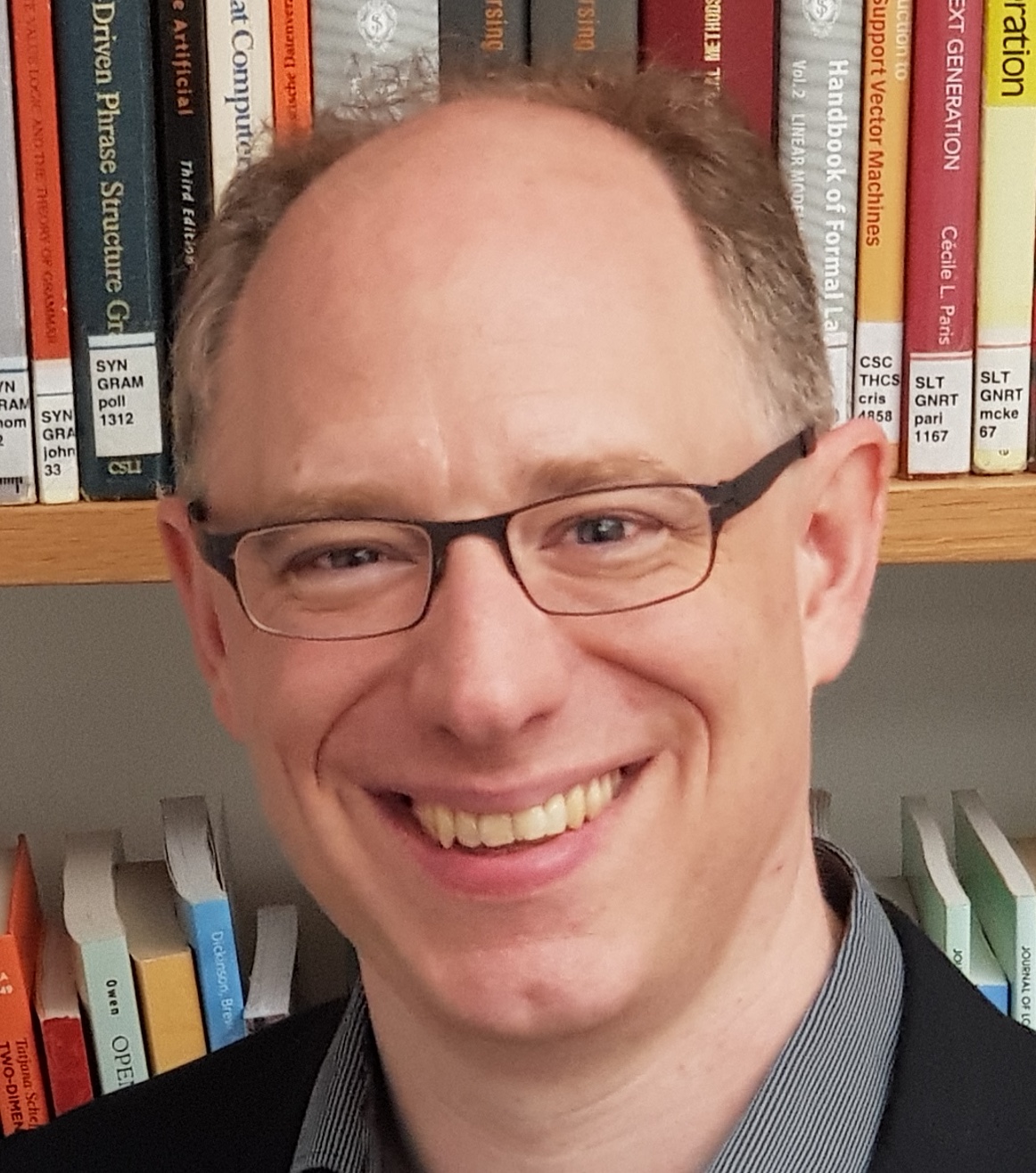September 2021: Research Talk
Alexander Koller (Saarland University): Compositional semantic parsing
- Annemarie Friedrich
- GSCL Research and Tutorial Talks

Date: September 16, 2021, 4pm -- Language: English
Abstract:
There are many technical approaches to mapping natural-language sentences to symbolic meaning representations. The current dominant approach is with neural sequence-to-sequence models which map the sentence to a string version of the meaning representation. Seq2seq models work well for many NLP tasks, including tagging and parsing, and deliver excellent accuracy on semantic parsing as well.
However, it has recently been found that seq2seq models struggle with "compositional generalization": They have a hard time generalizing from training examples to structurally similar unseen test sentences. I will show some new results that pinpoint this difficulty more precisely, and discuss what this means for how to best evaluate
semantic parsers.
I will then present our own research on compositional semantic parsing, which combines neural models with the Principle of Compositionality from theoretical semantics. Our semantic parser uses a neural supertagger to predict word meanings and a neural dependency parser to predict the compositional structure, and then evaluates this
dependency structure in a graph algebra to obtain the meaning representation. We achieve state-of-the-art parsing accuracy across a number of graphbanks, at a speed of up to 10k tokens/second. A demo is available at http://amparser.coli.uni-saarland.de:8080/
